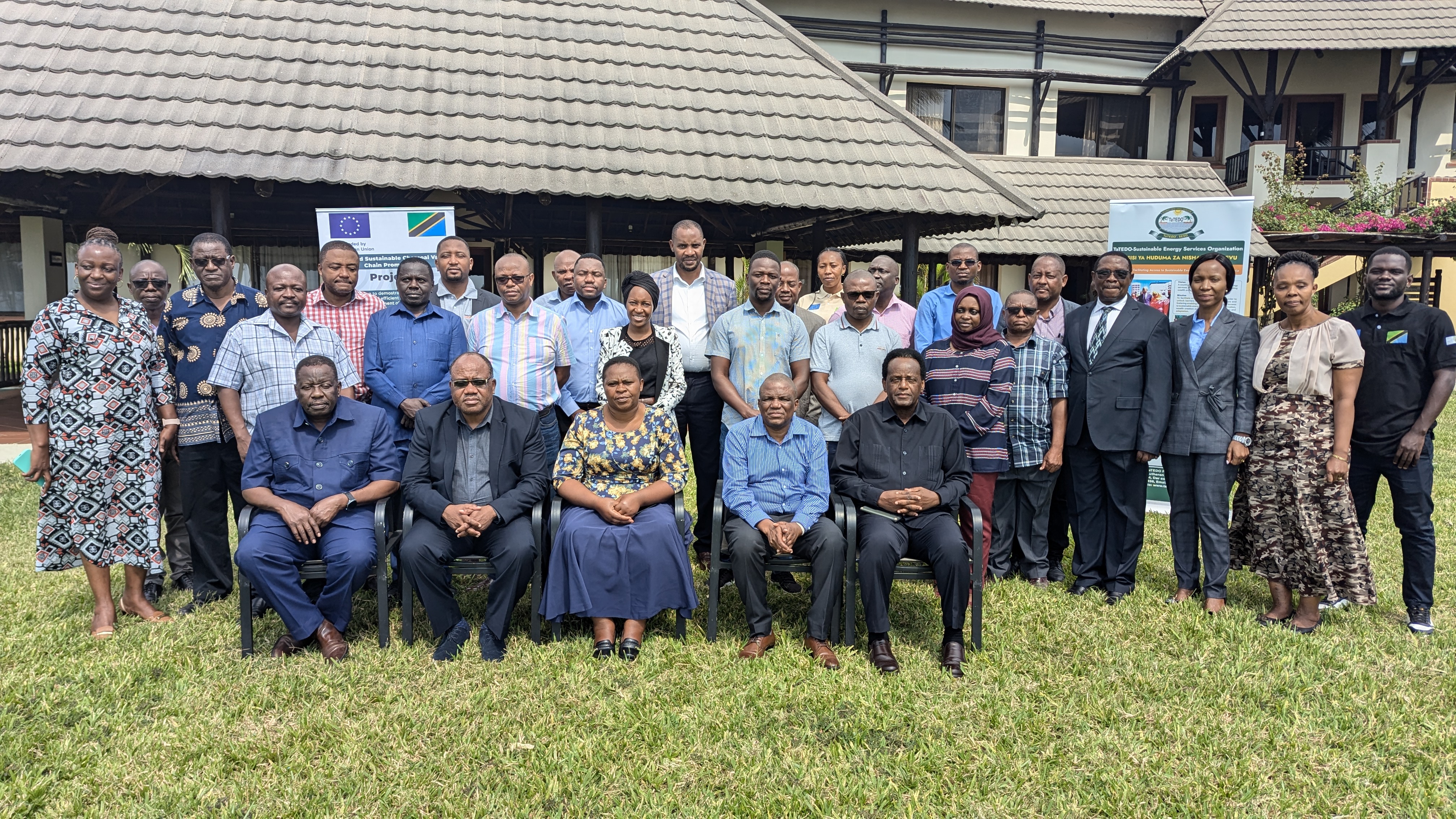Stakeholder Validation Workshop Tackles Challenges in Sustainable Charcoal Value Chain Promotion.
- Category: News
- Published: Thursday, 12 September 2024 14:10
- Written by Elvis
- Hits: 226

The Integrated Sustainable Charcoal Value Chain Promotion (ISU-CHAVPRO) project achieved a critical milestone with the recent stakeholder validation workshop, aiming to review and validate a comprehensive study on the policies and legal frameworks impacting Tanzania's sustainable charcoal value chain. The workshop brought together key stakeholders from various sectors, including government, development partners, and civil society organizations, to provide feedback and ensure the study aligns with on-the-ground realities.
Eng. Estomih Sawe, CEO of TaTEDO-SESO, inaugurated the workshop with opening remarks that emphasized the importance of the project, which will be implemented for three years. He highlighted that the outcome of the workshop would be instrumental in promoting clean cooking practices and a sustainable charcoal value chain, crucial for achieving the goal of Tanzania’s National Clean Cooking Strateg(2024-2034).
The study under review was conducted by a team of three experts tasked to analyze the policies and legal frameworks related to the charcoal value chain. Their study findings come out with significant gaps and inconsistencies that hinder sustainable charcoal value chain practices, particularly in forestry management and charcoal production.
One of the key focus areas of the study was the National Charcoal Strategy, a crucial policy instrument designed to support sustainable charcoal value chains. Despite its importance, the strategy has been shelved due to the conception that it conflicts with the national clean cooking energy strategy for 2024-2034. The study argues that rather than contradicting national goals, the strategy is vital for advancing Clean Cooking activities in the country.
The analysis highlighted several sources of charcoal, including general lands, village land forest reserves, private lands in villages, and government reserves. The study revealed that much charcoal is sourced illegally, with limited value addition at the resource base. Conflicts and shortcomings in the current legal frameworks were also noted, particularly the lack of explicit support for sustainable charcoal production in existing policies like the Forest Act No. 14 of 2002.
Stakeholders provided critical feedback during the plenary session, noting several areas where the study could be improved. One of the significant concerns was the omission of key documents in the initial analysis, such as the Community-Based Forest Management (CBFM) Action Plan and the TBS Charcoal Package Standards. There were also suggestions to address the lack of enforcement of existing laws, which has led to widespread illegal practices along the charcoal value chain.
Other key recommendations included the need for clear guidelines on allowable charcoal packaging sizes, suggestions for alternative energy sources for fish processing as outlined in the Fisheries Policy, and the importance of involving the Rural Energy Fund (REF) in supporting sustainable charcoal and firewood initiatives.
Stakeholders stressed the importance of launching the National Charcoal Strategy, urging that the study should recommend the necessary steps to bring this critical policy instrument into implementation.
The workshop marked a significant step towards addressing the challenges in Tanzania's charcoal sector, with a shared goal of promoting sustainable practices that align with the country’s broader environmental and energy objectives. As the study undergoes final revisions, it is expected to provide a robust framework for policy interventions that will pave the way for a Sustainable Charcoal Value Chain in Tanzania.

